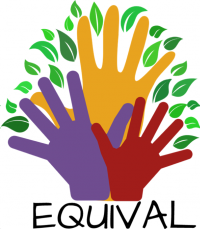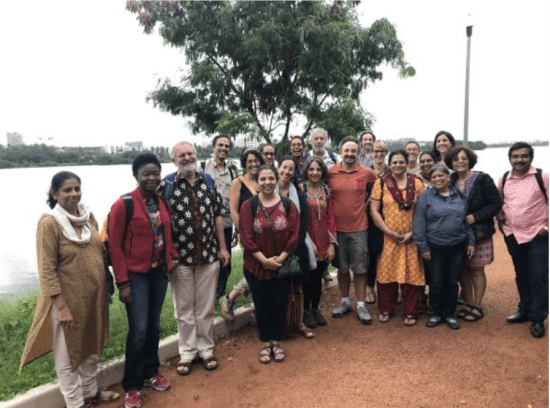The EQUIVAL Project: Nurturing a Shift towards Equitable Valuation of Nature in the Anthropocene
EQUIVAL provides the seed for a transdisciplinary vision of the role of equity in the valuation of nature.
What is PEGASuS?
The Program for Early-stage Grants Advancing Sustainability Science (PEGASuS) seeks increase knowledge, promote innovation, and establish evidence-based solutions to the world’s most difficult sustainability challenges. PEGASuS brings together researchers from across borders and the natural and social sciences to take creative approaches to exploring the relationships between people and the planet. Our goal is to generate self-sustaining research projects that will have real impacts on the health and wellbeing of human societies.
This is the second in a series of five stories on PEGASuS: Biodiversity and Natural Assets.

The EQUIVAL Project: Nurturing a Shift towards Equitable Valuation of Nature in the Anthropocene
Principal Investigators: Prof. Unai Pascual (Ikerbasque Research Professor at the Basque Centre for Climate Change) and Prof. Patricia Balvanera (Professor at the National Autonomous University of Mexico)
In order to secure more ethical and more effective approaches for nature conservation, social equity needs to be integrated as a key aspect in environmental governance. This involves recognizing and creating transparent and participatory mechanisms that can explicitly include the voices of the diversity of stakes and worldviews about human-nature relations. This necessarily requires that valuation of biodiversity (a shorthand for nature or any biotic system as seen by modern science, or other knowledge systems) and its contributions to people is also an equitable process. Equitable valuation implies: recognition of diversity of worldviews on human-nature relations, guaranteeing transparent participation of stakeholders in expressing and articulating values, and being mindful of the distribution of benefits and burdens of valuation-based decisions.
EQUIVAL provides the seed for a transdisciplinary (integration of multiple disciplines together with involvement of stakeholders) vision of the role of equity in the valuation of nature. It seeks to identify and analyze on-the ground cases with varying degrees and understandings of equitable valuation-led decision-making processes. By so doing it aims to demonstrate the impacts of equitable valuation on nature, as well as the opportunities and challenges that equitable valuation faces under varying social-ecological conditions.

The EQUIVAL team meeting in Bangalore, India from 3rd to 5th of October 2019.
Recent progress
EQUIVAL is in the process of documenting case studies from the Global South to come up with a set of robust indicators that can connect equity in valuation and the level of conservation effectiveness. EQUIVAL is establishing an international network of scientists and other stakeholders, such as NGOs, end-users, including indigenous peoples, and policy-makers focused on the nature conservation-poverty reduction nexus, across administrative scales as well as intergovernmental science-policy organizations such as the Intergovernmental Platform of Biodiversity and Ecosystem Services (IPBES).
One of the main results we got from exploring different cases from the Global South is that at the local level reaching social equity and environmental sustainability is a matter of engaging plural valuation approaches in processes around knowledge co-production. In other words, reaching more equitable outcomes and more sustainable use of nature necessarily involves recognizing the different voices, stakes and worldviews about human-nature relations and creating transparent and participatory mechanisms to explicitly include them in valuation. This finding by the EQUIVAL team opens new ways for advancing transdisciplinary research about the interactions and the processes that can lead to equity, sustainability, and knowledge co-production in the valuation of natural assets in contexts of high diversity of values and different interests by relevant stakeholders.
DATE
February 25, 2019AUTHOR
Patricia BalvaneraUnai Pascual
SHARE WITH YOUR NETWORK
RELATED POSTS
Spotlight on LMICs – Tired of Breathing in Pollutants? Time for Better Fuel Economy and Vehicle Standards
Future Earth Taipei Holds 2024 Annual Symposium
Spotlight on LMICs – The Future’s Juggernaut: Positioning Research as Anchors for Environmental Health